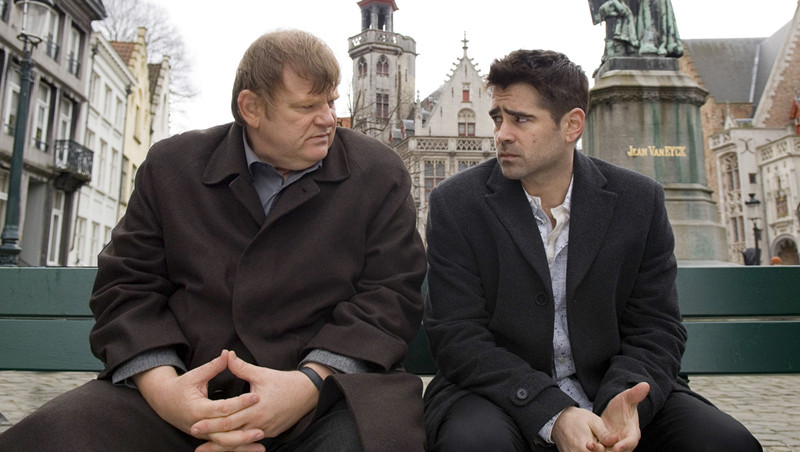
Comedy can vary from and venture into an infinite amount of genres, and while being totally subjective, it is usually agreed upon that the United Kingdom produces some of the most effective comedic cinema, both critically and commercially.
British comedies often feature quirky characters, deadpan delivery, and an emphasis on the small and everyday aspects of life, making them different from most comedies from other nations. Films from the likes of Monty Python and Edgar Wright help to shape British comedies old and new, and differ greatly from and is perhaps more nuanced than the typical Hollywood comedy.
When combining the drab humour of the Brits with themes of death and satire, among others, the British dark comedy is born. Created not with the intention of being purely for enjoyment, the dark comedy’s intention is to make light of serious and cynical aspects of life, and often blending the hilarious with the actuality.
1. Kind Hearts and Coronets (Robert Hamer, 1949)
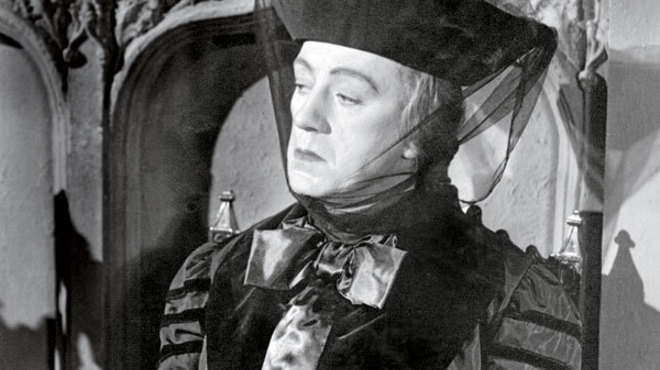
As one of the earliest of the famous Ealing comedies that stemmed from the late 1940s and carried on for a decade, “Kind Hearts and Coronets” acts as an early look and a culmination of everything represented by both British comedy and dark comedy. An antagonistic-yet-likeable lead character and a cynical-yet-hilarious narrative are enhanced by a whole host of quirky, multi-layered characters.
The film opens with the lead character Louis, played by Dennis Price, sitting in a prison cell, about to be executed on the electric chair. In his final hours, Louis writes his memoirs and tells the audience of how he came to be in such circumstances.
Without giving away too much of the plot, Louis’ heritage means he is entitled to hold the title of Duke, if it weren’t for the rest of his extended family making him last in line to gain the title. And so, Louis plans to assassinate all eight members of the family – and they’re all played by Alec Guinness in one of the highlights of his career.
The film is completely timeless, the script still retains its sharp wit, and the jokes land every single time. Guinness’ multiple characters provide much of the humour; his transformation into the different characters explores the definition of acting and creates eight memorable roles. The emphasis on death and self-gain has made this film go down as one of the all-time great dark comedies.
2. Withnail and I (Bruce Robertson, 1987)
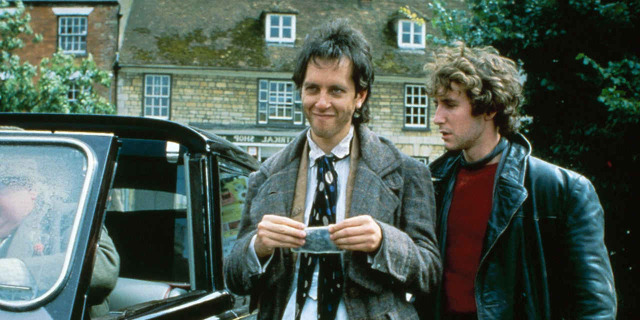
Perhaps one of the darkest comedies on this list, “Withnail and I” follows the story of Withnail (Richard E. Grant) and the narrator, I (Paul McGann), two struggling actors in 1960’s London, and they also happen to be alcoholics. The two decide to retreat to a countryside cottage, belonging to Withnail’s uncle Monty (Richard Griffiths). When they arrive, however, the living conditions are not exactly up to their standards, and the constantly pessimistic weather does nothing to lift their spirits.
Uncle Monty’s arrival to the cottage makes the duo’s holiday in the countryside take an even darker turn, as Monty develops feelings that are deeper than platonic for Paul McGann’s character, creating an ominous presence throughout the remainder of the film. The genius of the film, however, is its ability to be both hilarious and moving towards the film’s climax.
“Withnail and I” is one of the most famous cult films ever made, known for its iconic dialogue and characters. The film showcases all aspects of British comedy; its focus on the green hills of the countryside and persistent downpour of rain create a sombre atmosphere that is a perfect match for the sarcastic, pessimistic humour that is prevalent throughout the film.
3. Trainspotting (Danny Boyle, 1996)
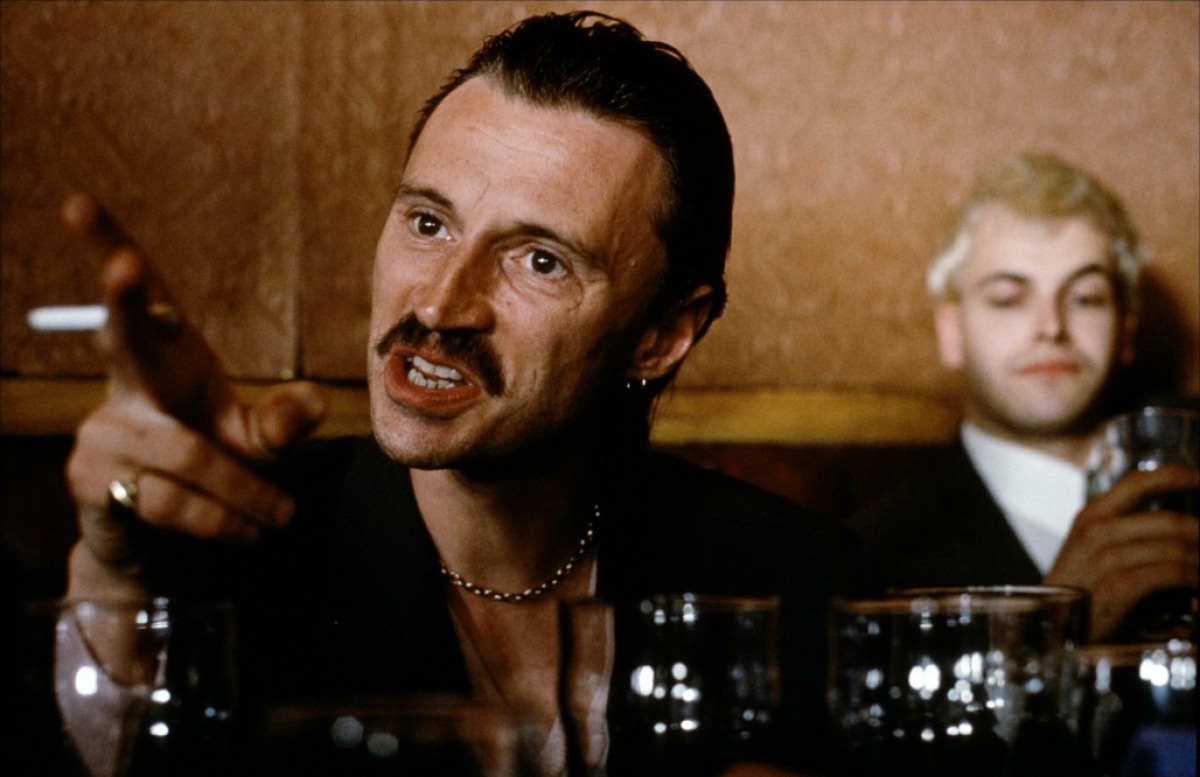
Based on the book by Irvine Welsh, this Scottish dark comedy follows the story of heroin addict Renton (Ewan McGregor) and his group of junkie friends through their antics of substance abuse. Performances from future stars including Ewen Bremner, Jonny Lee Miller, and Robert Carlyle exhibit a realistic, gritty edge of 1990’s Scotland.
The film is littered with iconic scenes, combining both the funny and the harrowing, from genuinely unnerving scenes of dead babies crawling on the ceiling to pranks between friends involving football VHS tapes.
Serving as the pivotal film in Danny Boyle’s career that would raise him to stardom, “Trainspotting” is a perfect insight into the life of a junkie, as well as an accurate representation of the working class Scottish life in the 90s. Accompanied by a great soundtrack, memorable imagery, and powerful performances from everyone involved, “Trainspotting” goes down as one of Scotland’s most unforgettable and haunting films.
4. Guest House Paradiso (Adrian Edmondson, 1999)
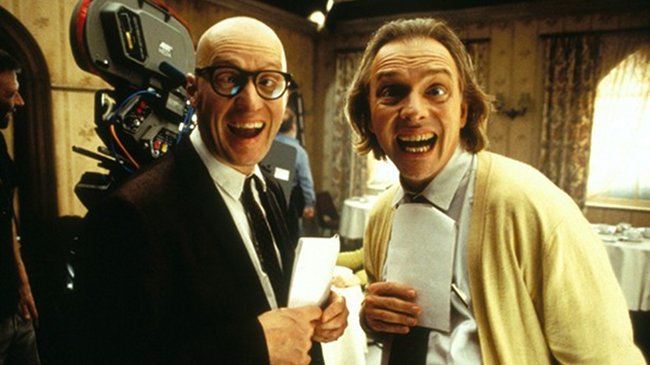
Based in part on their cult comedy TV show “Bottom”, Adrian Edmondson and Rik Mayall return to their characters for “Guest House Paradiso”. The two try to manage a run-down hotel situated next to a nuclear power plant, and eventually accidentally serve their few guests radioactive fish, contaminated by the power plant.
The darkly-lit guest house and tense moments throughout the film create a sinister atmosphere; however, the performances from Edmondson and Mayall as the two lead characters struggling to co-exist together, and the antics they deliver to the film, create a hilarious, gross-out comedy.
The film features stars such as Vincent Cassel, Simon Pegg, and Bill Nighy as various guests found in the guest house; however, it is the dynamic between Edmondson and Mayall that provides the laughs.
The film’s emphasis on slapstick makes the film feel silly, but the slapstick is so violent between the two that it brings a dark humour, arresting its audience and forcing a laugh from the most twisted part of the brain. The climax brings the film to a vomit-induced ending, leaving the audience just as queasy as the characters in the film.
5. The Parole Officer (John Duigan, 2001)
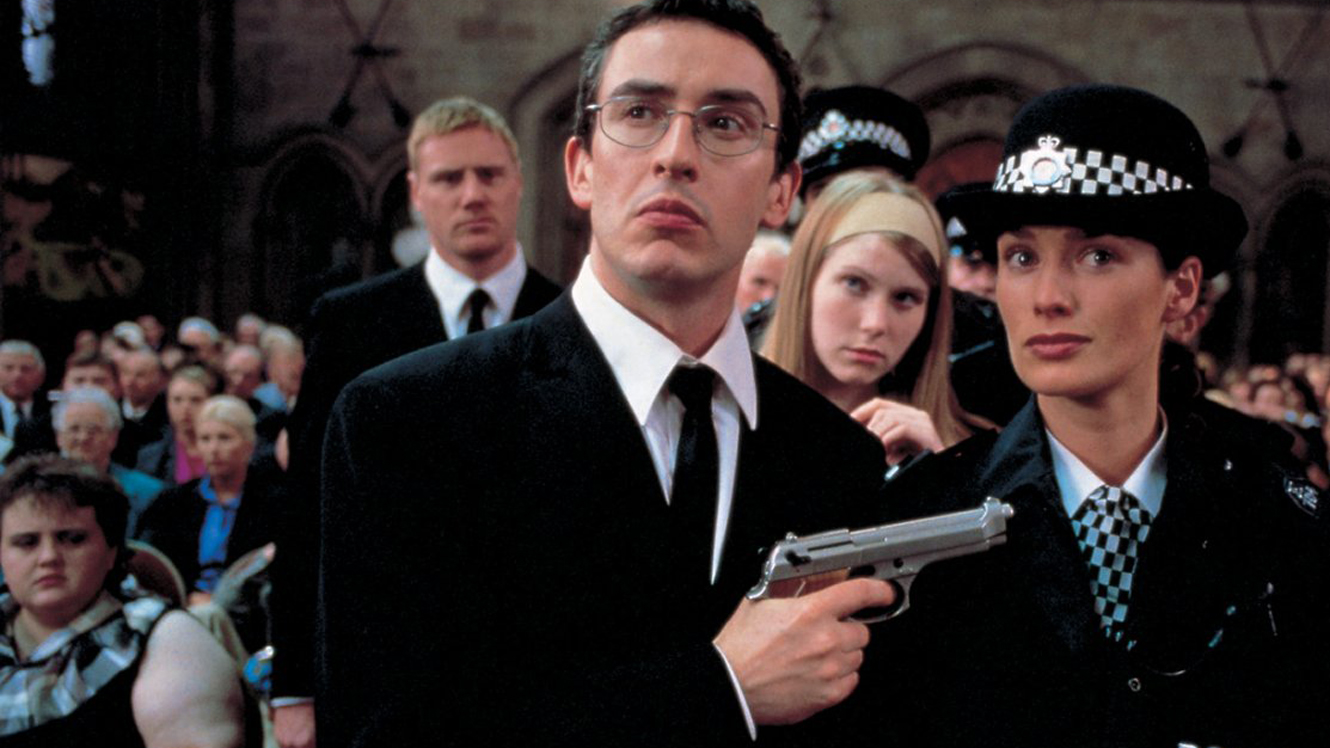
Steve Coogan takes on the titular role of Simon Garden, a parole officer who has been framed for murder by a corrupt police officer. The only way that Simon can clear his name is to reclaim a CCTV tape that shows his innocence, locked away in a bank vault.
This quirky comedy showcases a whole range of humour, including slapstick and satire, and mixes the two effectively to create a unique form of comedy. In terms of narrative, “The Parole Officer” is reminiscent of early Ealing films, and has a sense of adventure about it as Simon overcomes various trials and tribulations, making both friends and enemies along the way. Coogan himself is very likeable in the lead role, and is easily relatable as the downtrodden hero of the story.
While it’s not the darkest of comedies on this list, the film’s use of satire and gross-out style comedy create a diverse comedy that is wholly British.